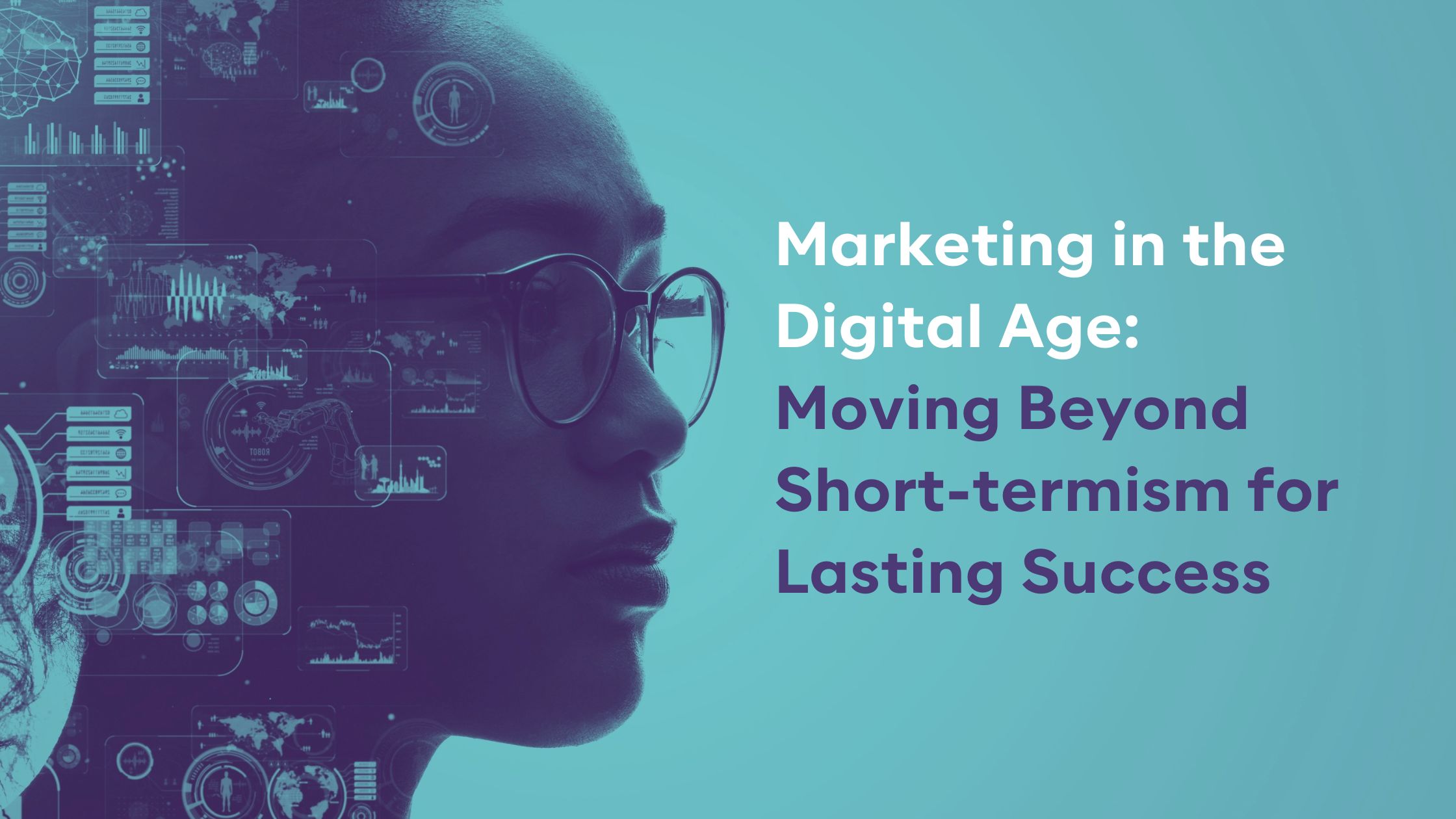I want to talk about a significant challenge that gets swept under the rug too often. In my experience and many others I speak to in the digital transformation industry, brands do themselves a disservice by being focused on short-term projects (or campaigns), thinking that these gains mean progress in the long run. To progress in your digital journey, you must balance short-term wins alongside long-term strategies and tactical rollout plans.
The latest Adobe Digital Trends Report shows that three-quarters of senior executives (73%) acknowledge that they prioritise immediate challenges over long-term planning and strategy, a trend seen more in lagging organisations than leading ones. This short-term focus is due to clients’ emphasis on vanity metrics, quarterly revenue goals, and uncertain geopolitical and economic outlooks.
However, survival and success in a challenging market require a strong focus on immediate efficiency and future planning, including protecting existing customers and building brand loyalty through a positive customer experience (CX).
The Adobe report highlighted a few critical reasons marketers should prioritise their digital transformation journey. It is a significant turning point for understanding the need to engage in more meaningful mid-term and long-term strategies for MarTech and marketing transformation.
Content demands are becoming unmanageable:
Organisations face difficulties meeting the increasing content demand due to rising customer expectations. Brands struggle to maintain their presence across multiple channels, respond to real-time customer interactions, and adapt to new opportunities. 89% of senior executives say the demand for content has significantly increased, making it a challenge. Creating personalised, emotionally-resonant experiences requires a large amount of content produced quickly, which involves the alignment of people, processes, and technology. The organisation must also be flexible to change direction if needed.
Most organisations can’t get a handle on their data to understand their customer.
Organisations need real-time customer data to create personalised and valuable experiences, but most organisations do not have access to this vital information. Leading organisations are more likely to have access to real-time data and are better equipped to serve customers’ needs. Recognising previous customer interactions is crucial for organisations to engage with customers appropriately. Gen-Z has also made it abundantly clear that they expect real-time, personalised experiences from brands.
Creativity is a scarce resource.
Creative problem-solving is critical to delivering exceptional and value-driven customer experiences. However, many organisations lack the time and resources to be creative, with 62% of senior executives agreeing that their organisations have become more efficient but at the cost of creative freedom. Only 22% of practitioners excel in combining customer data and empathy with creativity.
Lagging organisations are even more affected, with over half considering the lack of creative time a key internal barrier to delivering good customer experience. Content automation and AI tools are being seen as a way to free up time for higher-value creative thinking and boost efficiency, with 39% of senior executives considering streamlining or automating processes as a top CX priority for 2023.
Seemingly Impossible: Needs Parallel Engagement
It’s a seemingly impossible task, but it needs to be addressed because it will only worsen as the impact of AR and VR usher in the Metaverse Era. Forward-thinking marketers should focus on digitising, digitalising and managing digital transformation in parallel to stay ahead in the ever-evolving digital landscape.
Digitising involves converting analogue information into digital forms, such as scanning paper documents into digital files. On the other hand, digitalising refers to integrating digital technologies into all business operations. Digital transformation, finally, involves the use of technology to fundamentally change the way an organisation operates and delivers value to customers.
Digitalising customer support operations by implementing social media management tools and messaging apps brings customers closer to the organisation and improves their overall experience. For example, the inclusion of AI into content development tools can increase the speed of creating personalised content. This helps marketers keep up with the increasing demand for content and deliver personalised experiences to their customers.
Digital transformation requires a strategic approach to organisational change. One example is rethinking how marketing teams are developed to prioritise creative thinking, critical analysis skills, and technologically native environments. This helps organisations stay ahead of the competition and meet the ever-evolving needs of their customers by embracing new technologies and innovative thinking. By digitising, digitalising, and managing digital transformation in parallel, organisations can ensure that they remain relevant and competitive in a rapidly changing digital landscape.
Why Short-termism Culture is breaking your business
While you may be hitting targets and dishing out bonuses, you’re building an inevitable groundswell that is ignoring significant shifts in the industry and the customer:
- The digital industry has streamlined your marketing processes already.
- Technology innovators are breaking the rules and creating new futures that will change customer norms and operational norms for marketers.
- The customer today expects a level of personalisation and service delivery that you cannot deliver.
- Your business is too siloed to deliver, sitting on the wrong technology, arguing about the wrong issues and chasing short-term success instead of long-term sustainability.
It’s time to make a change; it’s time to champion your brands’ digital ascent.






